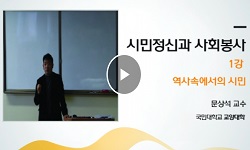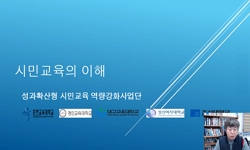본고에서는 세계사 과목에서 사용되는 ‘시민’의 개념을 여러 측면에서 분석함으로써, 최근 역사교육계에서 두각을 보이는 민주시민 양성을 위한 역사교육의 가능성을 살펴보고자 하였다...
http://chineseinput.net/에서 pinyin(병음)방식으로 중국어를 변환할 수 있습니다.
변환된 중국어를 복사하여 사용하시면 됩니다.
- 中文 을 입력하시려면 zhongwen을 입력하시고 space를누르시면됩니다.
- 北京 을 입력하시려면 beijing을 입력하시고 space를 누르시면 됩니다.

민주시민 양성을 위한 ‘세계사’ 교육의 가능성 검토 - ‘시민’ 개념을 중심으로 - = A Study of the Possibility of ‘World’ History Education to Cultivate Democratic Citizenship - Focusing on the Concept of ‘Citizen’ -
한글로보기https://www.riss.kr/link?id=A109283885
-
저자
고한석 (서울대학교)
- 발행기관
- 학술지명
- 권호사항
-
발행연도
2024
-
작성언어
Korean
-
주제어
World History ; Citizen ; History Education ; History of Citizen(ship) ; 세계사 ; 시민 ; 역사교육 ; 시민의 역사
-
등재정보
KCI등재
-
자료형태
학술저널
-
수록면
231-269(39쪽)
- 제공처
-
0
상세조회 -
0
다운로드
부가정보
국문 초록 (Abstract)
이처럼 시민 개념이 가지는 복잡성에도 불구하고, 세계사 교과서 서술에서 시민 개념에 대한 설명은 전혀 제시되지 않은 채 여러 역사 서술에서 공히 활용된다. 더욱이 시민 외에도 민중, 평민, 국민, 노동자 등 유사한 개념의 단어들을 혼용하는 등 시민에 대한 인식을 흩뜨리고 있으며, ‘시민성’의 측면에서 보았을 때 세계사 교과서의 서술은 ‘참정권’으로 대표되는 개인의 정치적 권리 향상, 즉 자유주의적 서술에 초점이 맞춰져 있다.
이러한 개념의 혼선이 발생하는 원인으로 번역어의 문제와 함께 세계사 과목에서 서구의 시민사회를 강조했던 전통을 들 수 있을 것이다. 그러나 민주시민 양성을 위한 역사교육의 논의에서도 시민의 개념을 역사적 차원에서 검토하기보다 현실 정치의 주체로서 접근하고 있기에, 오늘날 정치 이념으로 자리잡은 ‘서구식 민주주의’와 그 주체로서의 ‘시민’ 개념은 무비판적으로 활용되고 있다. 이를 해결하기 위해서는 민주시민을 위한 역사교육 담론의 정치성을 인정하거나, 혹은 다른 관점에서의 접근, 즉 다양한 시민성의 발전상을 보여주는 ‘시민의 역사’로 나아가야 할 필요가 있다.
본고에서는 세계사 과목에서 사용되는 ‘시민’의 개념을 여러 측면에서 분석함으로써, 최근 역사교육계에서 두각을 보이는 민주시민 양성을 위한 역사교육의 가능성을 살펴보고자 하였다. 우리가 ‘민주시민’이라는 개념을 일상적으로 사용하는 것과 달리, 역사 속에서 시민이라는 개념은 상당히 복잡한 발전상을 보여 왔다.
이처럼 시민 개념이 가지는 복잡성에도 불구하고, 세계사 교과서 서술에서 시민 개념에 대한 설명은 전혀 제시되지 않은 채 여러 역사 서술에서 공히 활용된다. 더욱이 시민 외에도 민중, 평민, 국민, 노동자 등 유사한 개념의 단어들을 혼용하는 등 시민에 대한 인식을 흩뜨리고 있으며, ‘시민성’의 측면에서 보았을 때 세계사 교과서의 서술은 ‘참정권’으로 대표되는 개인의 정치적 권리 향상, 즉 자유주의적 서술에 초점이 맞춰져 있다.
이러한 개념의 혼선이 발생하는 원인으로 번역어의 문제와 함께 세계사 과목에서 서구의 시민사회를 강조했던 전통을 들 수 있을 것이다. 그러나 민주시민 양성을 위한 역사교육의 논의에서도 시민의 개념을 역사적 차원에서 검토하기보다 현실 정치의 주체로서 접근하고 있기에, 오늘날 정치 이념으로 자리잡은 ‘서구식 민주주의’와 그 주체로서의 ‘시민’ 개념은 무비판적으로 활용되고 있다. 이를 해결하기 위해서는 민주시민을 위한 역사교육 담론의 정치성을 인정하거나, 혹은 다른 관점에서의 접근, 즉 다양한 시민성의 발전상을 보여주는 ‘시민의 역사’로 나아가야 할 필요가 있다.
다국어 초록 (Multilingual Abstract)
Along with the problem of translation, the tradition of emphasizing western civil society within the world history courses can also be cited as the cause of confusion. Moreover, because the concept of citizen is approached as a subject of real politics rather than a historical review even in the discussions of history education, the concepts of ‘Western democracy’ and ‘citizen’ are used uncritically today. To solve these problems, it is necessary to recognize the politics within the discourse of history education for cultivating democratic citizenship, or to move toward a “History of Citizen(ship)” that shows the development of various forms of citizen(ship).
This paper aims to examine the possibility of world history education that cultivates democratic citizens, a topic recently highlighted in the history education, by analyzing how the concept of ‘citizen’ is being used in the world history course. ...
This paper aims to examine the possibility of world history education that cultivates democratic citizens, a topic recently highlighted in the history education, by analyzing how the concept of ‘citizen’ is being used in the world history course. Unlike the daily usage of the term ‘democratic citizen,’ the development of citizen(ship) as a concept has been fairly complex throughout history. However, world history textbooks present various historical descriptions of the concept of ‘citizens’ without any clear explanation. In addition, similar concepts such as people, commoners, and workers are also used. In terms of ‘citizenship,’ the descriptions in the world history textbooks focus on improving individual political rights such as ‘the right to vote,’ reflecting liberalist perspectives.
Along with the problem of translation, the tradition of emphasizing western civil society within the world history courses can also be cited as the cause of confusion. Moreover, because the concept of citizen is approached as a subject of real politics rather than a historical review even in the discussions of history education, the concepts of ‘Western democracy’ and ‘citizen’ are used uncritically today. To solve these problems, it is necessary to recognize the politics within the discourse of history education for cultivating democratic citizenship, or to move toward a “History of Citizen(ship)” that shows the development of various forms of citizen(ship).
동일학술지(권/호) 다른 논문
-
역사교육을 탈식민화하는 것의 역사적 의미 - 영연방 대학을 중심으로 -
- 역사교육연구회
- 신동경
- 2024
- KCI등재
-
- 역사교육연구회
- 역사교육연구회 편집부
- 2024
- KCI등재
-
- 역사교육연구회
- 홍성화
- 2024
- KCI등재
-
한일 역사 갈등의 變換과 역사교과서 敍事 構成의 변화(1945~2007)
- 역사교육연구회
- 김태웅
- 2024
- KCI등재




 DBpia
DBpia






